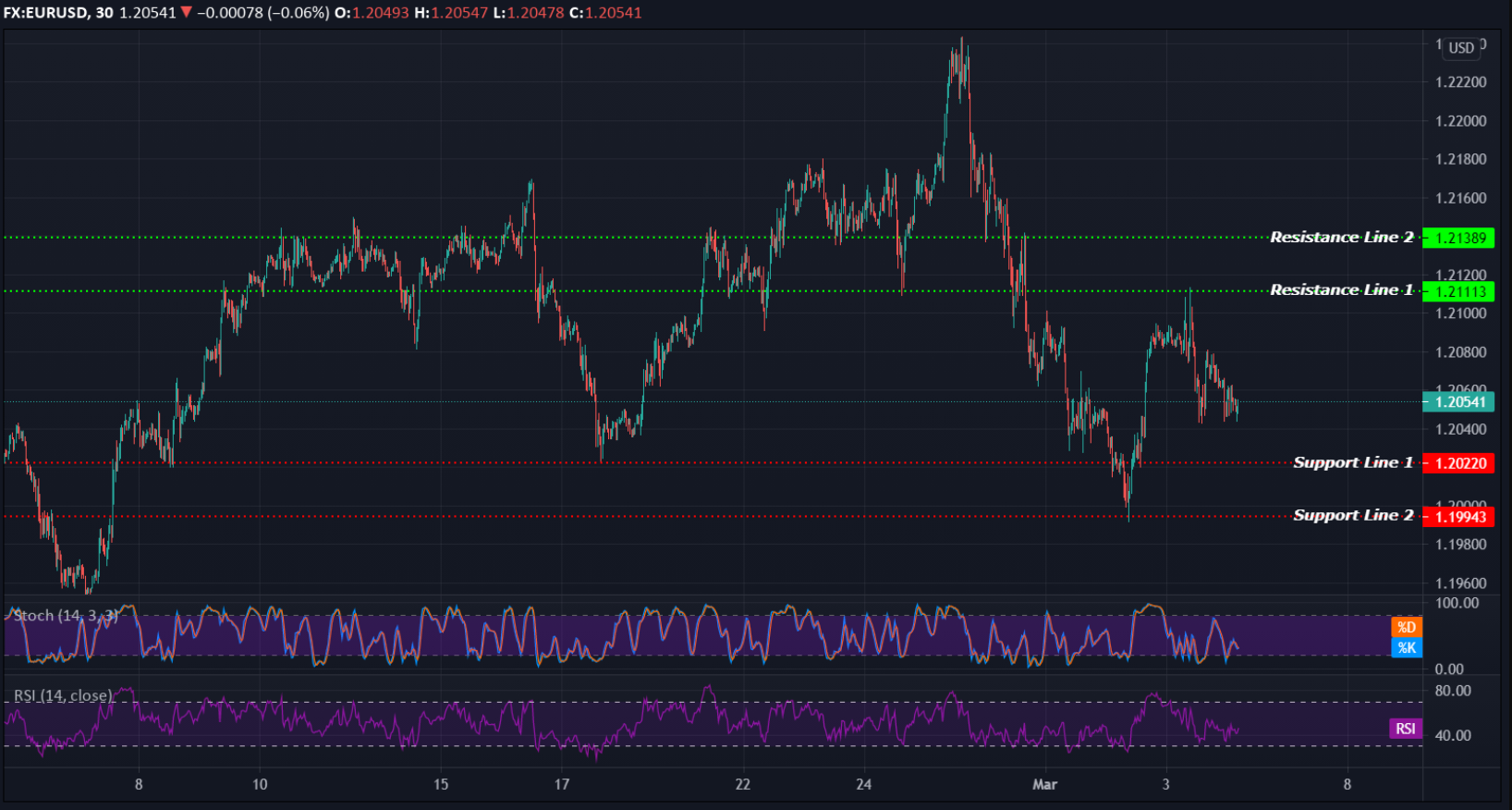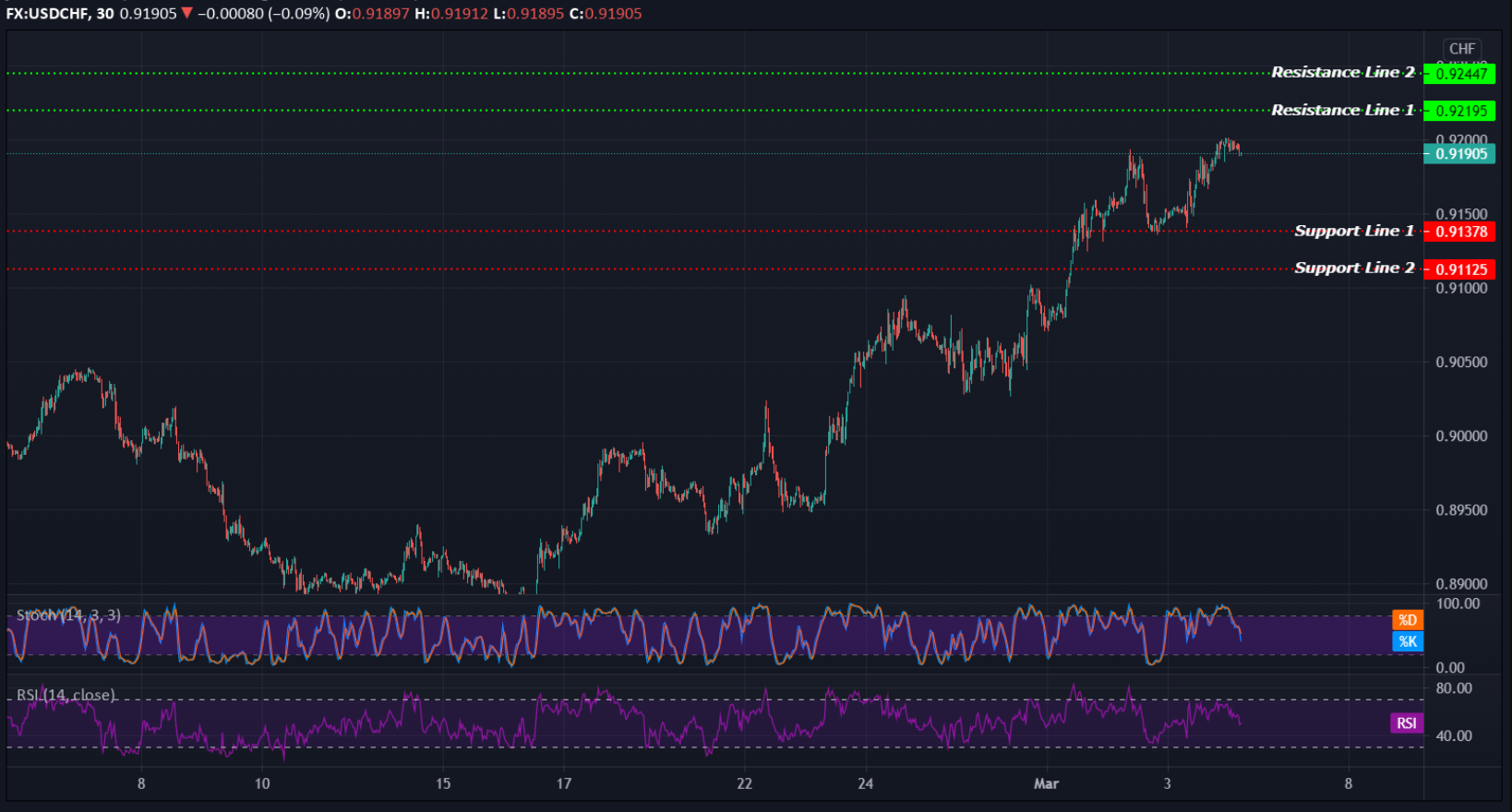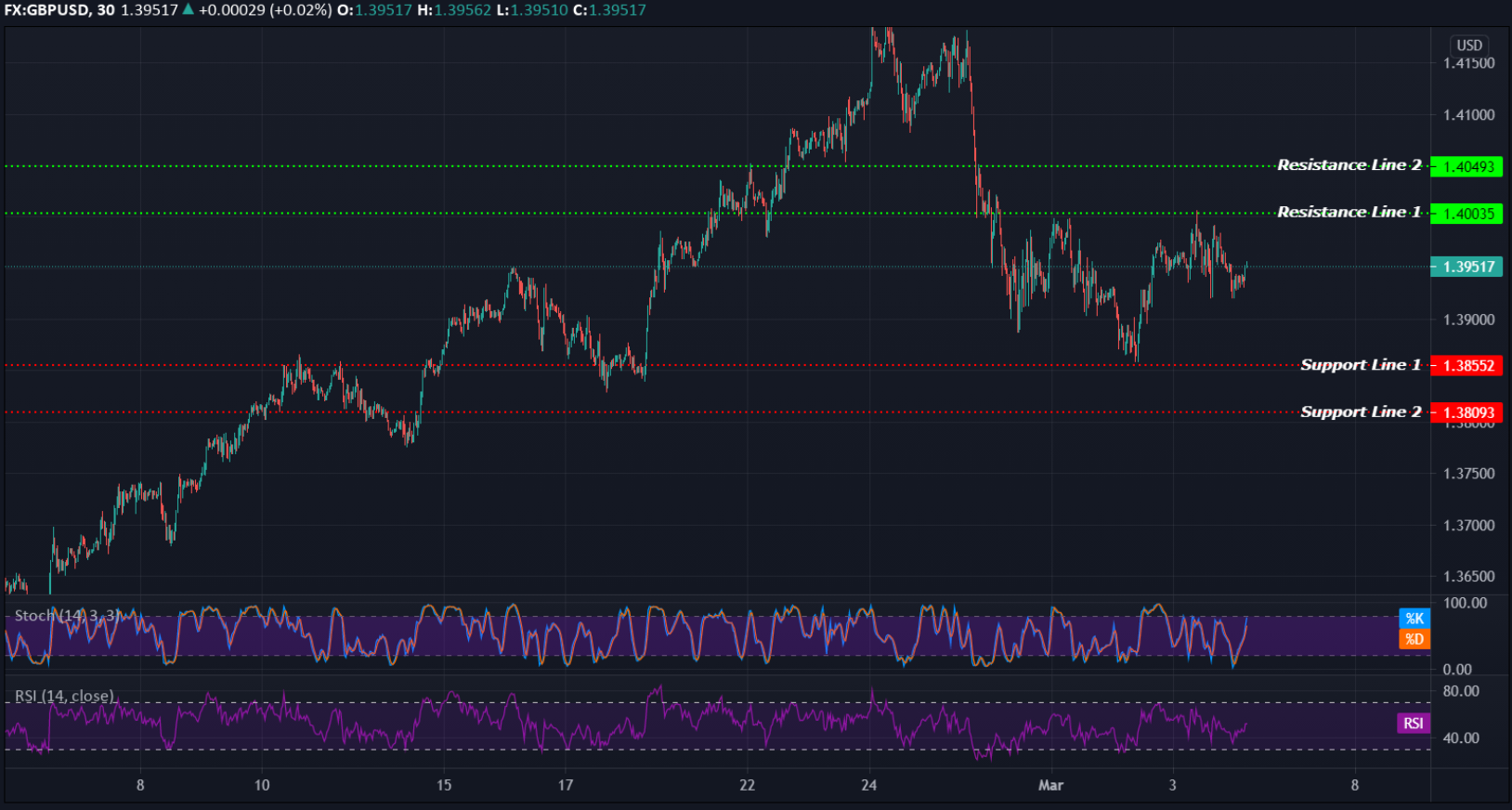[EURUSD]
Important Levels to Watch for:
- Resistance line of 1.21113 and 1.21389.
- Support line of 1.20220 and 1.19943.
Commentary/ Reason:
The euro declined against the dollar at $1.20541 on Thursday.
The euro failed to maintain its gains at the opening today as it traded lower against the U.S. dollar on a lack of buying interest. Sentiment remained prone to the broader U.S. dollar reaction to higher U.S. yields, especially if the U.S. yield rise starts to outpace other countries' bond yield bounce.
Comments on Wednesday from Chicago Fed President Evans also were bullish for the dollar as he said that he shares the view that the recent rise in bond yields is healthy and he doesn't expect that there’s need to change the duration of the Fed's bond purchases.
U.S. stock indexes, meanwhile, were under pressure overnight, which boosted some more liquidity demand for the dollar.
The gains in dollar, however, were capped as U.S. economic data was negative. U.S. Feb ADP employment report rose weaker than expectations, and the ISM services index fell weaker than expectations.

[USDCHF]
Important Levels to Watch for:
- Resistance line of 0.92195 and 0.92447.
- Support line of 0.91378 and 0.91125.
Commentary/ Reason:
Against the Swiss franc, the dollar rose to 3-month high earlier today, before eased 0.09% lower, to 0.9190.
The spectre of higher U.S. bond yields undermined low-yielding currencies, including the safe-haven Swiss franc.
Currency investors continued to snap up dollars as they bet on a U.S. economy outshining its peers in the developed world in coming months. Fiscal stimulus fuelled market expectations for a rapid recovery, with President Joe Biden close to passing a US$1.9 trillion spending package.

[GBPUSD]
Important Levels to Watch for:
- Resistance line of 1.40035 and 1.40493.
- Support line of 1.38552 and 1.38093.
Commentary/ Reason:
The British pound steadied on Thursday, extending its fourth day climb against the dollar, to stood at $1.3954 on the day.
Delivering the annual budget speech on Wednesday, British Finance minister Rishi Sunak extended costly emergency programmes to see Britain's economy through the COVID-19 crisis but announced a future tax squeeze on businesses and individuals as he began to focus on the huge hole in the public finances.
In addition, Sunak will borrow significantly more in the coming financial year than thought just a few months ago — 234 billion pounds, or 10.3% of the GPD, compared with a previous estimate of 164.2 billion pounds, or 7.4% of GDP.
British government bond prices fell sharply, with 10-year gilt yields rising more than 8 basis points.














